Posts tagged with Replace VST
Here you can find a listing of all posts with the tag Replace VST on my page.

Oct 03, 2025 Tutorial
Temperance Light is a plugin marketed as a revolutionary musical reverb, but it essentially combines a reverb with a filter, offering a polished look but limited flexibility. In Bitwig Studio, you can easily recreate and expand on its features using onboard devices, allowing for much more customization, like choosing your own reverb, filter types, and even adding delays. By building this effect yourself, you gain deeper creative control and a better understanding of sound design, rather than being restricted to a single, fixed plugin.
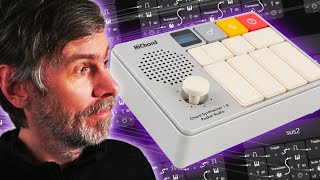
Sep 15, 2025 Bitwig Preset
In this video, I demonstrate how to recreate the functionality of the popular hardware device, the High Court, inside Bitwig, allowing you to play and modify diatonic chord progressions using your keyboard instead of spending hundreds on the physical unit. I showcase how to set up and use my Bitwig preset for easy chord selection and modification, and how to record the results into a MIDI track. You can download my free preset from GitHub, and I'm open to feedback or requests for additional features or Bitwig Studio 5 compatibility.
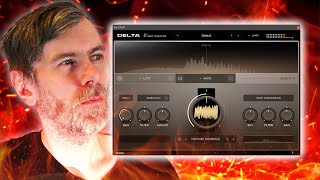
Mar 16, 2025 Tutorial
In this video, I demonstrated how to recreate the Delta distortion plug-in in Bitwig Studio by using techniques such as amplitude modulation and signal subtraction to generate overtones and modulate the original signal. I outlined the patch setup, including using a band-splitter, AMRM module, and customizable distortion curves, allowing for modulation with either the side chain or the main signal itself. You can download my preset for free from my GitHub to experiment with these techniques in your own projects.
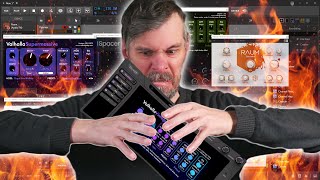
Jan 21, 2025 Tutorial
In this video, I demonstrate how to replicate the silencer effect in Bitwig Studio using native tools. By utilizing a chain container with a reverb plug-in and modulating it with an ADSR, I can reset the reverb tail with each new note. This technique may not match the silencer plug-in's quality, but it provides a similar effect using Bitwig's native capabilities.
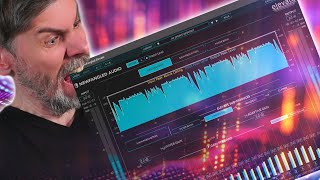
Jan 17, 2025 Tutorial
In this video, I attempted to replicate the Newfangled Audio's Elevate plugin using Bitwig Studio by creating a similar mastering setup with a filter bank, compressor, and clipper. I utilized impulse responses for band splitting, which helped maintain CPU efficiency, and included modular options for compression and limiting to tailor the audio to personal taste. The project file is available for download in the description for viewers to try and provide feedback.
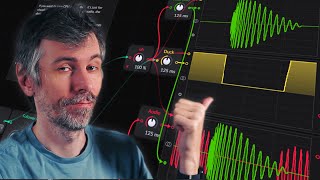
Oct 28, 2024 Tutorial
In this video, I explain the concept of ring mod sidechain modulation and demonstrate how to achieve it in Bitwig Studio. I discuss the potential for distortion using this method and suggest using Bitwig's audio sidechain modulator as a cleaner alternative. Additionally, I provide a more advanced setup in Bitwig's FX Grid for precise control, with both presets available in the video description.
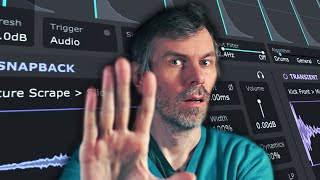
Oct 27, 2024 Tutorial
In this video, I discuss the Snapback plugin by Cableguys, which detects drum triggers to layer samples on top or in front of drum sounds, and compare it to a Bitwig Studio native solution. I demonstrate how to use the Bitwig Replacer device to achieve similar results, offering a free preset for viewers to experiment with. Ultimately, I highlight the Snapback plugin's intuitive interface and quality sample selection as key value points.

Oct 02, 2024 Tutorial
In this video, I demonstrate how to replicate the functionality of the Plasma plug-in by iZotope within Bitwig Studio. By using techniques like loud split, EQ adjustments, and saturation, I create a flexible method to achieve similar frequency-specific saturation effects without the high CPU usage. I also provide a free preset for download, encouraging viewers to like, subscribe, and share their thoughts in the comments.

Sep 11, 2024 Tutorial
In today's video, I walk you through my attempt to replicate the beloved early 2000s plugin, CamelCrusher, inside of Bitwig Studio, focusing on its Tube and Mac distortion algorithms, and the filter. Although I left out the compressor and some features like preset saving, I think my version gets pretty close to the original, especially in hitting the key harmonics. You can try my free preset by downloading it from the link in the description, it's a handy alternative to the non-resizable 32-bit VST.
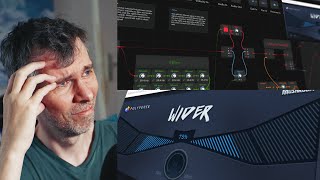
Sep 10, 2024 Tutorial
In this video, I attempt to recreate the WIDER 2.0 plug-in by Infected Mushroom inside Bitwig Studio. I demonstrate how the original plug-in works by creating peaks and dips in the frequency spectrum, which cancel out in mono, and then I showcase my own preset that mimics this effect, with added controls for more customization. Finally, I highlight that my preset may sound slightly better and more natural due to the included convolution reverb on the side channel.
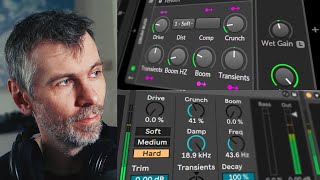
Aug 14, 2024 Tutorial
In this video, I discuss the highly requested Drum Buss device in Ableton Live and how it can be replicated in Bitwig Studio. I provide a free preset download that mimics the functionality of the Drum Buss using native Bitwig devices. I encourage viewers to download the preset and provide feedback to help improve and tailor it to their preferences.
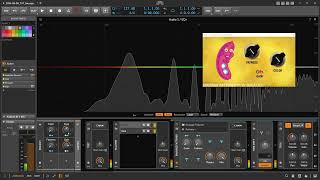
Aug 12, 2024 Tutorial
In this video, I discuss the controversial Sausage Fattener plugin and its effect on music. I explain that it functions as a soft clipper with a compressor in front, preventing audio material from clipping too hard. To demonstrate its impact, I provide a free preset for Bitwig Studio that closely replicates the plugin's sound.
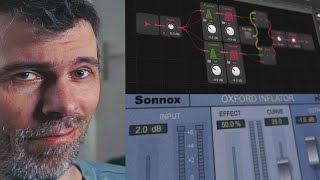
Aug 07, 2024 Tutorial
In this video, I demonstrate how to replicate the Oxford Inflator plugin inside Bitwig Studio. While the Oxford Inflator is essentially just a soft clipper or saturator, I attempted to copy its curve as closely as possible. I provide a free preset for Bitwig Studio users to achieve a similar effect with options like the FX filter plus device, bipolar/unipolar options, or the saturator with a soft knee.
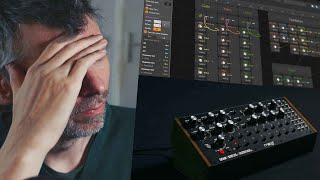
Aug 05, 2024 Tutorial
In this video, I demonstrate the sounds of my PFAM, a replica of the Moog DFAM, inside Bitwig Studio. I explain the layout and modifications I made to the original device, showcasing its percussive capabilities and versatility as a techno sequence generator. The preset is available for free download and I welcome feedback and suggestions for future devices.
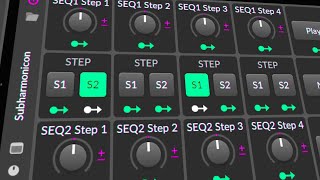
Jul 29, 2024 Tutorial
In this video, I recreated the Subharmonicon synthesizer in Bitwig Studio. The layout consists of two main oscillators with sub ratio knobs for dividing the frequency. There is also a mixing section, routing panel, and pulley rhythms for creating unique sequences.
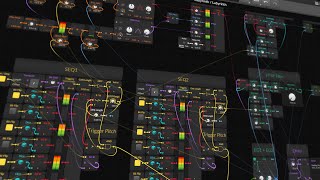
Jul 12, 2024 Tutorial
In this video, I showcase my recreation of the Moog synthesizer called Labyrinth inside of Bitwig Studio. I explain the different sections and features of the synthesizer, including the oscillators, mixing section, wave folder, filters, routing options, VCA, and more. I also mention that I might implement a corrupt feature in the future to randomize the sequences, but for now, the preset can be downloaded for free.
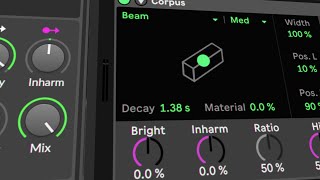
May 27, 2024 Tutorial
In this video, I explain how to replicate the functionality of Corpus in Bitwig Studio. Corpus is essentially a resonator with specific frequencies, and by adjusting parameters like type, resonance, and in-harm, you can create different resonances and effects. I also provide a preset that emulates Corpus within Bitwig Studio and offer the option of using AAS's Object Delay if you want to achieve the exact same sound.
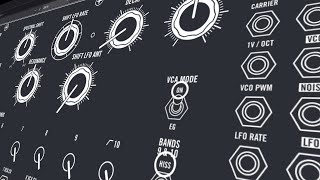
May 20, 2024 Tutorial
The Moog Spectravox is a new vocoder/filter bank with limited features, but the sound quality is what sets it apart. While it's possible to replicate it in Bitwig Studio, it doesn't make sense to do so because the hardware device has a unique sound that can't be replicated in software. However, I've created a preset in Bitwig Studio that mimics the functionality of the Moog Spectravox for those interested in exploring it further.
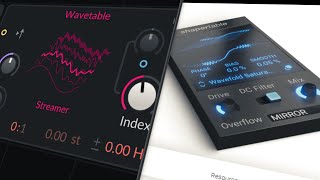
Mar 21, 2024 Tutorial
In this video, I found a distortion device on Reddit that allows me to load in a wave table and create different distortions by morphing through it. By using a high pass filter, I can eliminate the DC offset and achieve better results. Additionally, instead of using wave tables, I can also use multiple transfer curves, merge them, and blend between them for different distortion effects.
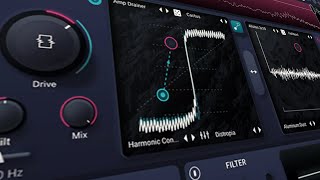
Mar 15, 2024 Tutorial
In this video, I explain how to rebuild the Trash 3 plugin in Bitwig Studio. I demonstrate the process step by step, using various devices and macros to replicate the features and functionality of Trash 3. The video includes download links for the preset and encourages viewers to have fun experimenting and customizing the setup.
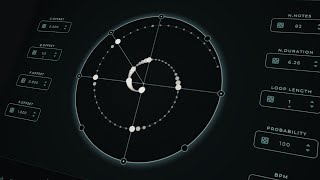
Mar 15, 2024 Tutorial
In this video, I successfully replicated Harmony Bloom inside of Bitwig Studio with a few differences. Harmony Bloom is a Polyrhythm generator that allows you to generate notes and control various parameters such as note length, loop length, probability, offset, and more. Although my replication may not be 100% accurate, it provides a similar functionality within the grid of Bitwig Studio.
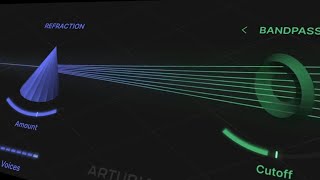
Jan 05, 2024 Tutorial
In this video, I demonstrate how to replicate the concept of Arturia's EFX Refract plugin using Bitwig Studio's Bitwig Grid. I outline the process of creating multiple voices, applying delay and modulation effects, and implementing a bandpass filter for each voice. While I couldn't replicate the plugin's 3D interface or harmonizer, this tutorial serves as an inspiration for creating similar effects in the Bitwig Grid.
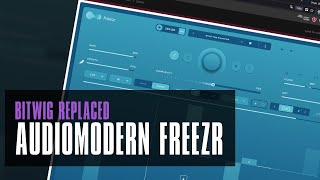
Nov 17, 2023 Tutorial
In this video, I explore creating a buffer repeat effect similar to Freezer within the Bitwig Studio grid. I demonstrate three different versions: one using triggers and modulation, another using predefined triggers, and a third using a scalar with the ability to shape the volume of each repeat. These methods allow for unique and customizable effects that can't be achieved with standard plugins.
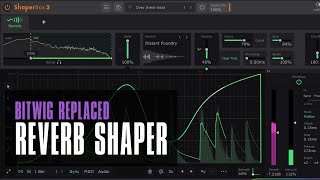
Nov 16, 2023 Tutorial
In this video, I share my experience with replacing VST plugins and discuss how companies don't actually hate me for it because of the advantages offered by certain plugins. I demonstrate how to replicate the features of a reverb shaper using a chain device, tool device, and convolution reverb in Bitwig Studio. Additionally, I explore the unique effects that can be created using the fade mode in the Delay Plus device.
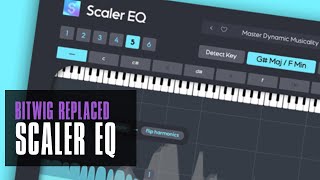
Nov 15, 2023 Tutorial
In this video, I discuss a new EQ plugin called Scaler EQ, which allows you to select a scale and only choose frequencies that are within that scale. I demonstrate how you can replicate this functionality in Bitwig Studio by using EQ plugins and the pitch quantizer. While the interface cannot be replicated, the technical aspects can be achieved.
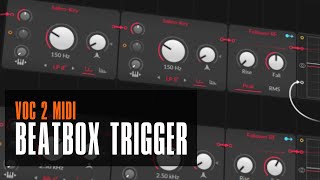
Jun 05, 2023 Tutorial
In this video, I show how to record your microphone and convert it into MIDI notes to trigger random samples in Bitwig Studio. To do this, I use a trigger to trigger the kick drum, snare, and hi-hat samples, and a hardware device to select the microphone input. I also use an auto-leveler with a follower, threshold, and sustainer to amplify the vocals and filter out noise. To separate the sounds, I use a sound key filter with a bandpass, low pass, and high pass, and use logic to exclude certain combinations of triggers. Finally, I use a quantizer in trigger mode to put all the triggers on the grid. Overall, this process requires a lot of tweaking and filtering to find the right sweet spot, but it can be done in Bitwig Studio with some experimentation.
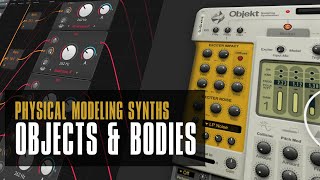
May 11, 2023 Tutorial
In this video, I explain how to make a physical modeling synth in the Reason software. Physical modeling is a way of replicating real-world objects in a synth by modeling their resonances and frequencies. To start building the physical modeling synth, we need to introduce an exciter and use multiple bandpass filters. The resonance frequency of objects is specific to their material, and the frequencies of the overtone change with time. We need to introduce envelopes for each overtone that changes over time. We can use multiple partials and tune the frequencies of the bandpass filters to replicate specific objects' resonances. Loudness is also crucial, and we can use multiple envelopes for each harmonic. We can use a comp filter or use a ratio knob to target specific harmonics. Alternatively, we can introduce all harmonics and remove the ones we don't want. It's an intricate process, but the result is worth the effort.

Apr 24, 2023 Tutorial
In this video, I share my process of creating risers and transitioning effects using the global modulator in Bitwig Studio. I was inspired by UJAM's final boost and Data Life's Endless Smile plugins and wanted to replicate the effects in Bitwig. Instead of using manual automation, I used the curve editor to create a ramp that gradually increases the effect's intensity over time. I demonstrated how to apply this technique to individual tracks, such as chords, bass, and percussion, to create more dynamic and interesting effects with precise control. This technique is a great VST replacement and allows for more creative flexibility in creating risers and sweeps in your music.
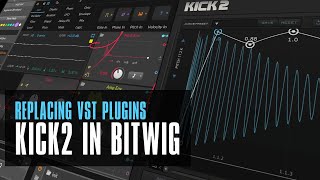
Apr 17, 2023 Tutorial
In this video, I show how to replace Kick 2 with basic grid patching in Bitwig Studio. I demonstrate how to recreate the functions of Kick 2 using the grid, including the oscillator, envelopes, click sound, EQ, distortion, and more. This offers more flexibility and customization options compared to using Kick 2, allowing users to create their own unique kick drum sounds.
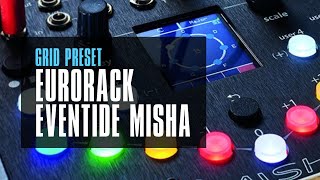
Jan 24, 2023 Tutorial
In this video, I'm going to explain how I recreated the Eurorack module by Eventide called Misha in Bitwig Studio. I'll explain how it works, how to download the patch, and how to recreate it from this video. I'll also demonstrate how to use the keyboard, trigger buttons, and sequencer to control it. Finally, I'll show you how to transpose and use the key filter to create different scales. So, stay tuned and I'll show you how to make your own Misha clone!
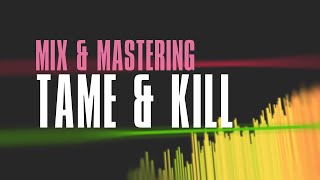
Nov 18, 2022 Tutorial
In this video I discussed how to mimic the behavior of the DSEQ3 with Bitwig Studio's native Loud Split device. I demonstrated how to set the Loud Split device to a 3 dB per octave tilt setting and how to adjust the loudness level, knee setting, and rise and fall settings. I showed how to identify resonances and over amplified frequencies in a mixdown and how to use the Loud Split device to reduce these frequencies. I also suggested using the Loud Split device for mastering.
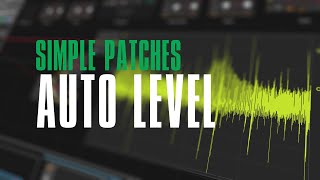
Nov 16, 2022 Tutorial
In this video, I demonstrated how to create a simple auto-leveling patch in the grid. I used an oscilloscope, a divide or division operation, and a follow-off to average out the audio signal. I also implemented a threshold algorithm to make sure that the auto-leveler doesn't amplify noise annoyingly. This technique works in any modular environment and can be useful for maintaining the same loudness level for a generative grid patch or audio clip.
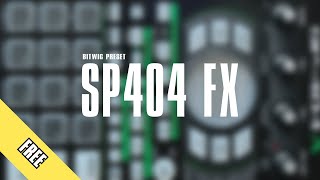
May 20, 2021 Tutorial
In this video, I show how to recreate the magic effect section of an Roland SP404 sampler hardware device in Bitwig Studio. I explain how to make a chain device to contain all of the effects, and then I go through each effect step-by-step. I demonstrate how to create a beat repeater, a bit crusher, an EQ, a delay, a filter, a pitch wobble, and a low fire effect. I also show how to use remote controls to trigger the effects and how to synchronize them to the beat grid. Finally, I provide a free preset to download in the description.
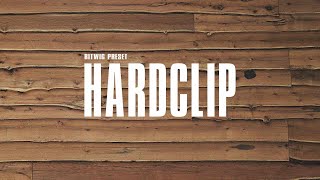
Aug 11, 2020 Tutorial
I created a preset card Hard-Clip for Bitwig Studio to clip the peaks of audio signals without going into the red or having intersample issues. The preset consists of Bit8, initial settings and two tool devices. I explained how to use it and how it can help to make a track sound louder and more percussive. I shared the preset in the description of the video, in my GitHub repository, on bitwig.community/presets and on the Bitwig Discord. I encourage viewers to save money and support my channel by using the link to the Bitwig Store with my code.

Apr 23, 2020 Tutorial
In this video, I am showcasing my new free preset for adding textures to sounds in Bitwig Studio 3.1. I demonstrate how to use the remote controls to mix in the texture, amplify the texture sample, change the texture, and use pink noise. I also explain how the rise and fall controls work for amplitude modulation and how to use the postfx box for EQ, transient shaping, and peak limiting. The preset is called textures and can be downloaded on my Patreon page for $1 or for free if you are already a patron. I also mention my plans to add more textures samples in the future and ask for feedback on the preset.
More Tags to choose from:
posts Bitwig FromScratch Tutorial German Talk Skyence articles Guidelines Knowledge PDF Brain Neurosience Webtool Tempo Mixing Harmony bitwig-guides Audio-FX Poly-Grid community-report Community helpers Chords Scales music-videos Ambient Hardware Jam Drum-and-Bass Music Mixtape fawm Behringer Moog Retro release Polarity Bandcamp polarity-music Bitwig-2.0 VST-Plugin Audio-Effects Bitwig-3.0 Presets Sampling Generative Melodies Note-Grid Bitwig-3.2 Modulators Bitwig-3.1 Plugins Preset Sound-Design Replace VST Note-FX Polysynth MPE Roli Melda Bitwig-4.4 MinimalAudio Distortion Midi Arturia Groove Drums Filters FX-Grid Bitwig-4.3.4 Physical-Modeling Eurorack Instrument Arrangement Automation Risers Transitions Audio2Midi OpenSource PlugData Reverb Clever-Audio-Plugin-Clap AI download FM-synths machine-learning oscillators soniccharge Sound-Generator SynPlant Synthesizers Compiler Heavy-Compiler Synth Current Granular-Synthesis Pads Vector XY-Instrument Touch-Designer Video-Edit Visuals Extension Beginners Bitwig-5.1 Glitch Sync Delay Signals xlnaudio additive Sequencer Euclidean Bitwig-5.1.2 No-Grid Stock Finishing-Songs Thoughts Browser Jazz M1 Convolution Polyrhythm Polymeter Clip-Launcher AudioThing Lese Techno Modulation Synthwave Routing Spectral tests paulxstretch Triton Grains Patreon Utility Analogue Oeksound Bitwig-5.1.6 Kilohearts Project Bitwig-1.3.16 Tegeler Wavetable tbproaudio Amiga Bitwig-5.1.7 Trance Bitwig-5.2b1 Theming Giveaway Bitwig-5.2b2 Segments Ableton Bitwig-5.2b5 key-tracking EQ zplane Bitwig-5.2b7 Calculations Markov Shift-Register Bitwig-5.2b8 Bitwig-5.2b10 Voice-Stacks Bitwig-5.2b11 Feedback Dynamics Bitwig-5.2b12 Bitwig-5.2b13 Bitwig-5.2 sonnox dadalife Bitwig-5.2.1 Bitwig-5.2.2 Bitwig-5.2.3 Problems Audio-Tracks reaction EDM Bitwig-5.2.4 Kickdrums fft Software Bitwig-5.2.5 process.audio Impulse-Responses Bitwig-5.3b1 Freq-Shifter Bitwig-5.3b2 Bitwig-5.3b3 Bitwig-5.3b4 StateOfBitwig Bitwig-5.3b5 Mastering ControllerScript Bitwig-5.3.2 openDAW Bitwig-5.3b10 Bitwig-5.3.1 Bitwig-5.3.8 Connect-4-12 GRMTools Waveguide reloop Bitwig-5.3.10 Application Bitwig-6b1 Bitwig-6b2 Bitwig-6b3 bitwig-grid-course bitwig-classic-sounddesign

































